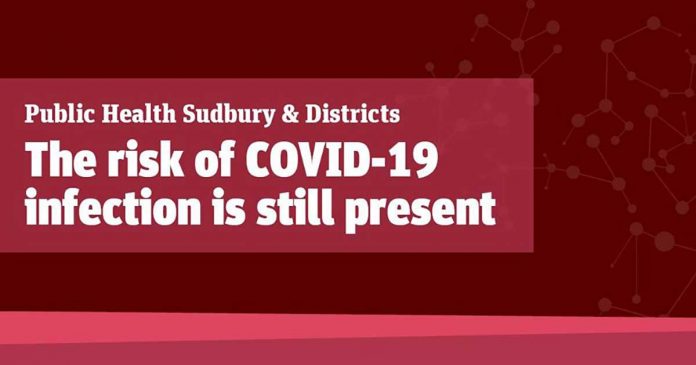TORONTO – News Media Canada (NMC) is urging the federal government to adopt an ‘Australian model’ to regulate digital content platforms, especially Google and Facebook, to ensure that publishers can profit off the work they pay to create, revenue that often goes to the digital platforms when users and news outlets share content on those sites.
“News is important to us as a society, but (high-quality) news costs money. Right now, it’s just not fair. (Journalists) are paying to create this product and they’re not being compensated for their work, work that is important to Canadians,” NMC president and CEO John Hinds told The Expositor.
NMC launched its campaign on October 22 to urge Canadian parliament to follow a model similar to Australia’s approach to further regulate digital platforms. Currently, technology companies are generating profits by providing a platform on which users can share or access information, including news content from publishers.
This profit comes by selling advertisements and gathering large amounts of data on users who access platforms like Facebook. These companies also gather information specifically on the people who visit news sites through links on their platforms.
Although the content—which publishers pay to create—is what drives the clicks, all advertising revenue that the platforms raise stays within their companies.
The ability to reach mass audiences has driven many advertisers to invest their marketing dollars in the digital content platforms, leading to steady declines in domestic publishing revenues.
“This has been an issue that’s been developing for a number of years, certainly as we’ve seen the growth of the monopoly (of Google and Facebook),” said Mr. Hinds. “More and more content is being used by the monopoly, and writers and publications are not being compensated for that.”
The Canadian government has committed to enacting some form of legislation, most notably in its September 23 throne speech that included a specific mention of ensuring fair revenue sharing for Canadian content creators.
NMC, of which both The Manitoulin Expositor and the Manitoulin West Recorder are members, is urging the government to follow Australia’s lead and implement similar policies to what the Oceanic country devised.
Under that model, news publishers in Australia have the ability to negotiate individually or as a group with digital platforms to licence their content. Australia also set 90-day negotiation limits, plus a 45-day binding arbitration period to follow if the sides could not reach an agreement.
The platforms would also have to provide analytic data about a publisher’s content performance and its audience to said publisher.
The Australia model expands the intellectual property rights of publishers, requiring platforms to licence the content they use.
Meg Sinclair, head of communications at Facebook Canada, said NMC’s report does not reflect a true understanding of the way its platforms operate.
“News organizations in Canada choose to post their content on Facebook to reach prospective subscribers, monetize their content and sell more advertising. There are many ways to approach these complex issues and we want to work with news publishers and the government on a solution,” read an emailed statement from Facebook to The Expositor.
Many news publishers, including The Expositor, choose to share their content on Facebook. That platform argues that most advertising in Canada takes place off Facebook.
A 2018 study showed that Google and Facebook account for 42 percent of all advertising spending across all media in Canada. When only accounting for digital advertising, Facebook and Google account for 27.3 and 51 percent of that market respectively, for a total of 78.3 percent of digital advertising going to those two companies in 2018.
That amounts to $5.941 billion of the $7.592 billion digital advertising industry in Canada, according to a report from Interactive Advertising Bureau of Canada.
This has left traditional media in a tough position, especially as they explore their own digital presences. Losing advertising revenue to social-driven and search-oriented platforms has constrained news outlets’ budgets while the stories they post online get shared to the other platforms, which then profit from their own advertising.
Facebook and Google have launched funds and support systems in recent years to boost Canadian journalists and news organizations, such as the Google News Initiative and the Facebook Journalism Project.
Google Canada vice-president Sabrina Geremia stated that the report misrepresents how the internet has affected news and doesn’t consider those who have failed to transform to a digital world. It also bypasses some of Google’s news-supporting initiatives like COVID-19 relief funding to newsrooms and its billion-dollar global investment in news partnerships, including in Canada. (The Expositor applied for and received Google’s Journalism Emergency Relief Fund money in the amount of $6,635.58. The Recorder also applied, but was turned down.)
“We all agree the future of news matters and, now more than ever, everyone needs to step up. We will continue our collaboration with governments, publishers and others to ensure quality journalism is able to thrive in Canada for years to come,” Ms. Geremia stated.
Seeing the Canadian government take an interest in supporting domestic publishers was a welcome sight for NMC, said Mr. Hinds.
“(Facebook and Google) are significant players. Their revenues are higher than many countries and this is not a battle or a group you take on lightly. We felt that it was very important that the government has become engaged on it,” he said.
In response to the Australian legislation, Facebook stated that the country did not understand the way the internet works or the value publishers receive through Facebook. These included a free distribution platform, the assertion that it will have to pay for news at a price greater than its worth, it would impact business relationships between publishers and platforms, it would give news publishers advance notice of changes to its internal workings and would also impact Facebook’s sister platforms such as Instagram.
Mr. Hinds took issue with the notion that Facebook provides a wider distribution network because of its imbalanced revenue distribution, likening it to how radio stations used to play music without compensating artists because they were giving them exposure.
“That’s what they’re doing here, too. Good journalism requires an investment and someone has got to pay for it. Those audiences are demanding quality journalism and we need to make sure it’s paid for,” he said.
The media model in Australia has many similarities to Canada, said Mr. Hinds, and would be an excellent starting point around which the Canadian government could base its legislation. He emphasized that NMC did not want the model to impose any additional costs on consumers, as well as no drain to the economy.
He said some Google and Facebook programs to support the news industry have targeted larger outlets, which can miss publications creating impactful journalism.
“It can’t just be for The Globe, the Star or La Presse, it has to cover The Manitoulin Expositor and everybody else,” he said. “As it stands right now, … it’s only going to be with the government backstop that we’re going to be able to have a real, fair negotiation process.”
NMC’s study of the Australian model pledged to let publishers recoup $620 million in revenue and maintain 700 reporter jobs.
The federal government has yet to announce any specific details of how it plans to regulate the digital platforms.





